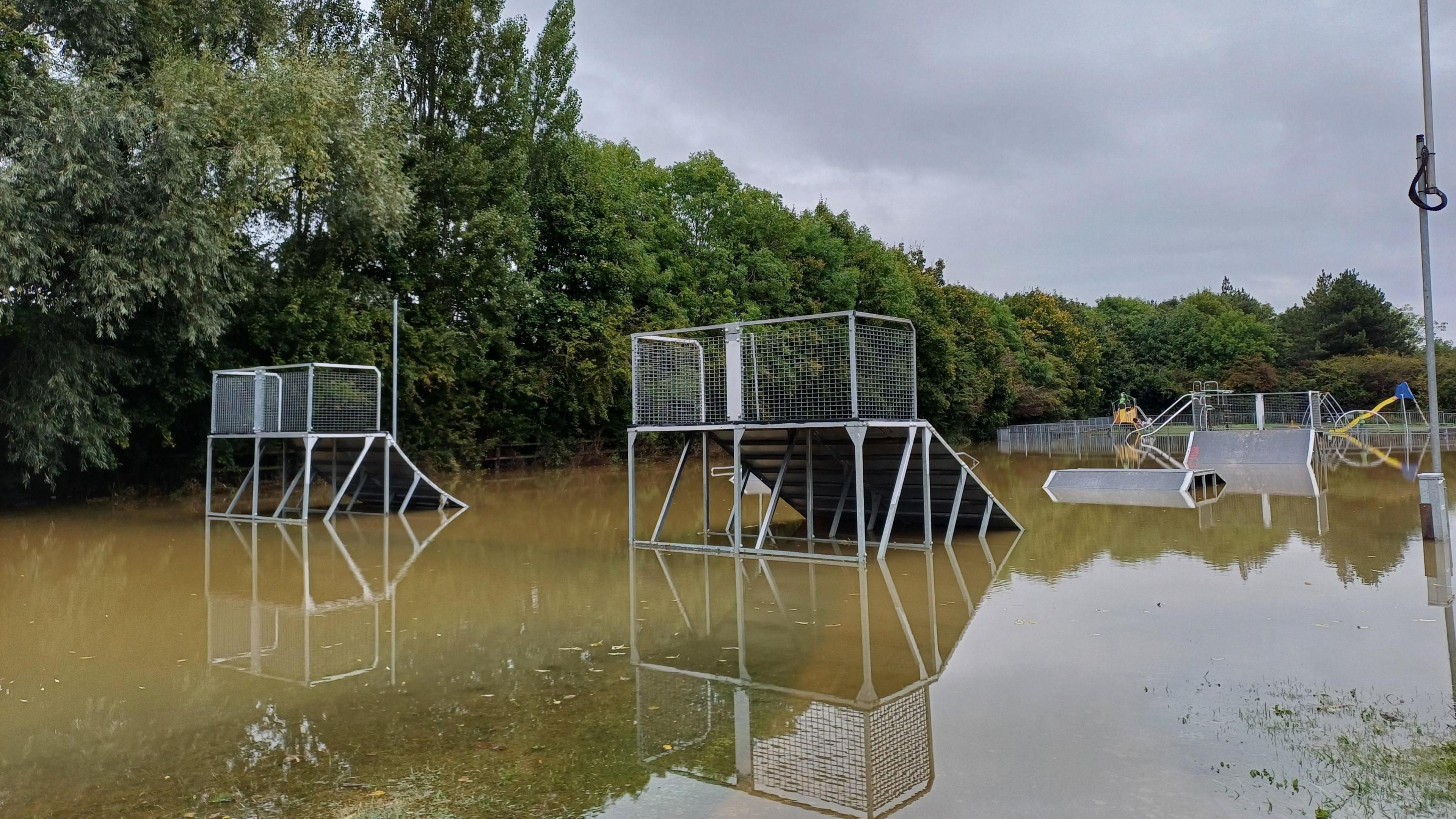'Significant questions' over why major road flooded
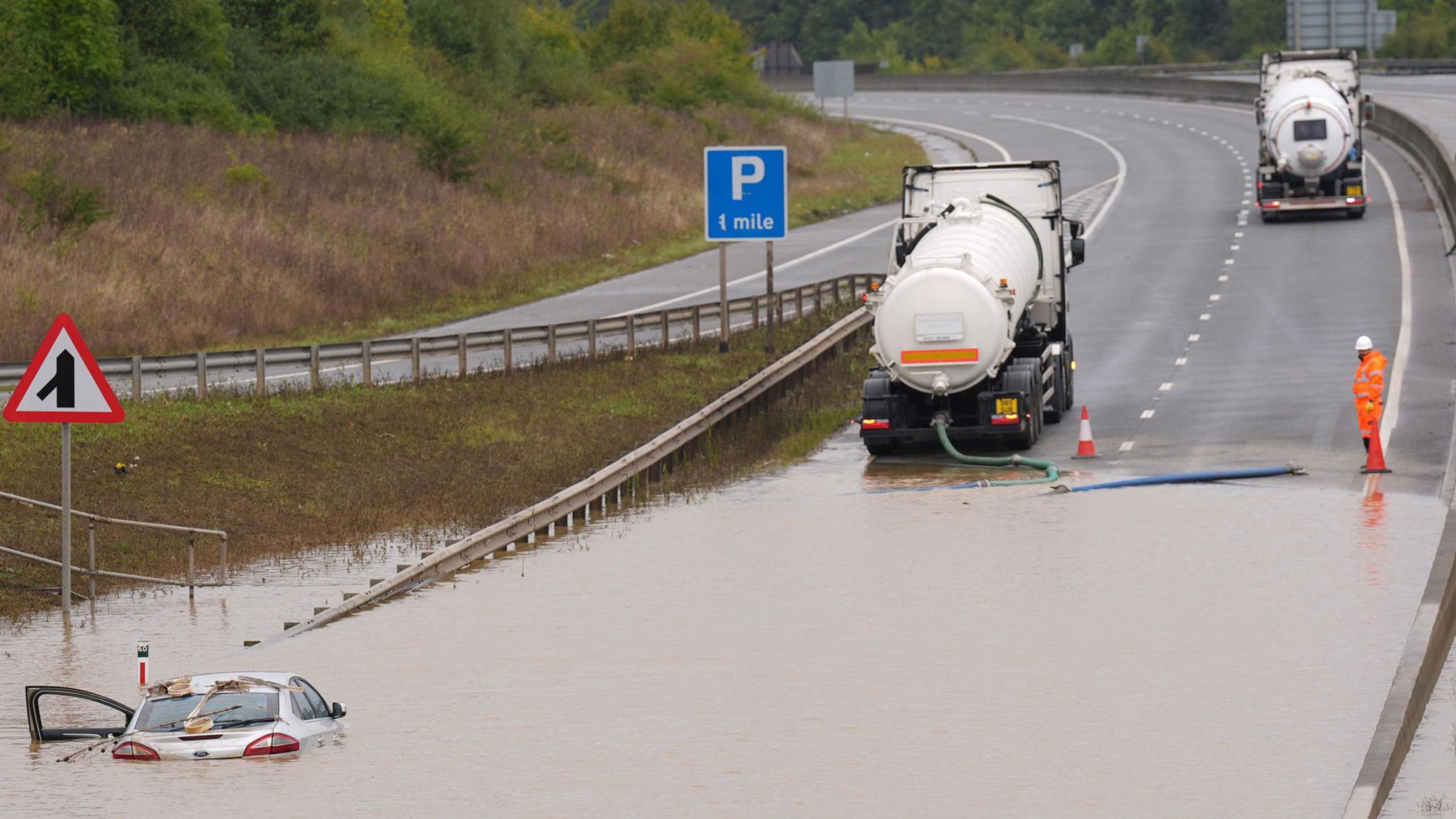
Parts of the A421 between Bedford and Milton Keynes were closed for almost three weeks after heavy rain on 22 September
- Published
There are "significant questions" about the design of a major road following recent flooding, an MP has told the House of Commons.
Parts of the A421 in Bedfordshire were closed for almost three weeks after heavy rainfall in September.
Conservative Blake Stephenson, who represents Mid Bedfordshire, also called for a new law to force councils to clear drains and culverts "regularly".
The flooding minister, Emma Hardy, said the government would "ensure people are better protected from flooding in the first place".
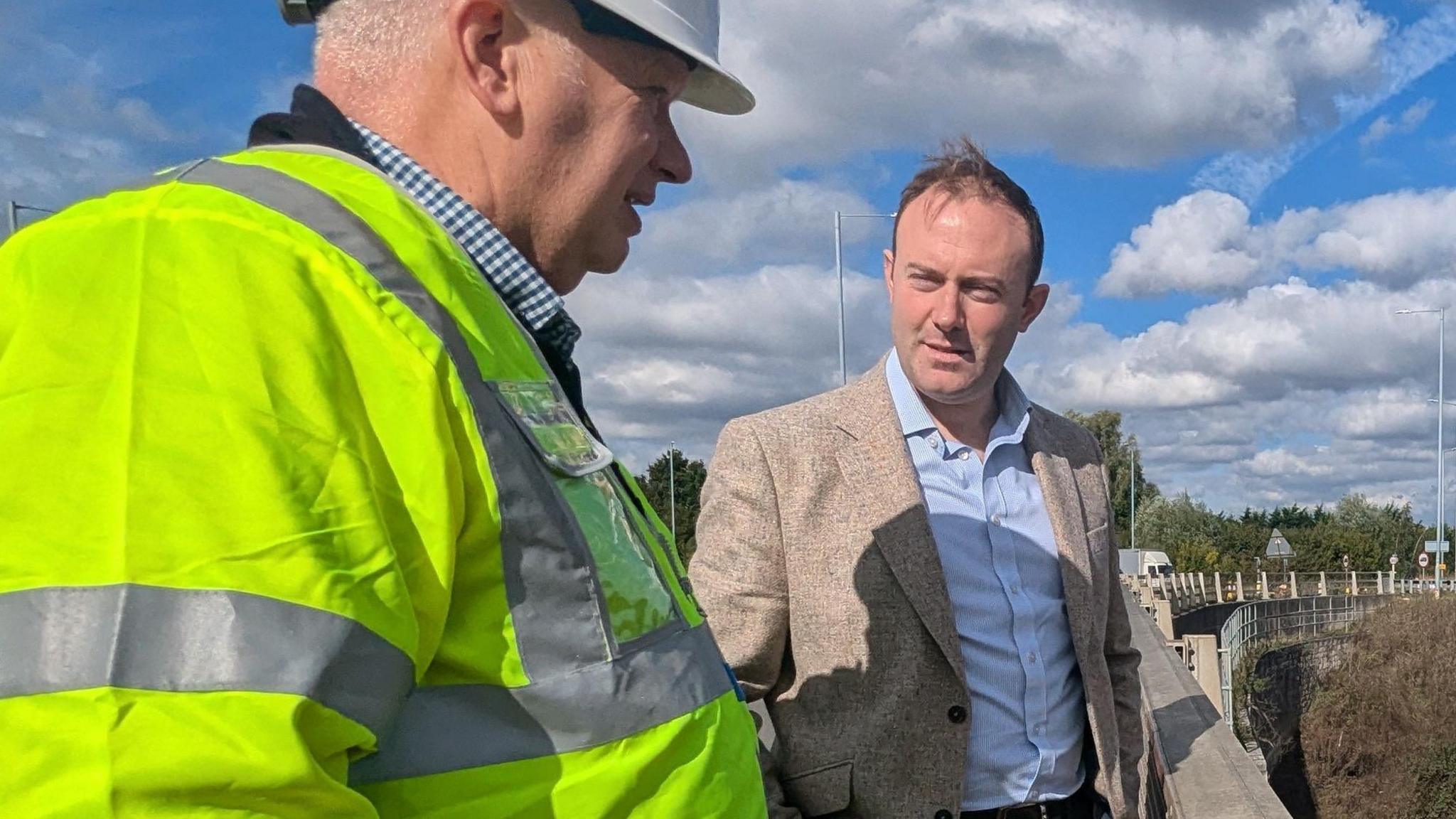
Blake Stephenson (right) visited areas affected by flooding
The A421 was shut at the Marston Moretaine interchange after more than a month's worth of rain fell in 48 hours from 22 September.
National Highways said it pumped 72 million litres of floodwater off the road - the equivalent to "around 30 Olympic-sized swimming pools".
Stephenson said he was "concerned that the government fails to appreciate the significant but localised impact" of the floods.
He described the A421 as "perhaps the most high-profile victim".
"Significant questions must be asked as to how we got here - how a major A road, connecting Bedford with the M1, built this century, could have been built down into the ground in a historic flood plain, which of course is prone to flooding," he said.
"It was designed in such a way that it regularly floods a little, but it was also built with flood mitigations insufficient to deal with the kind of flooding that could become all too common in the years ahead."
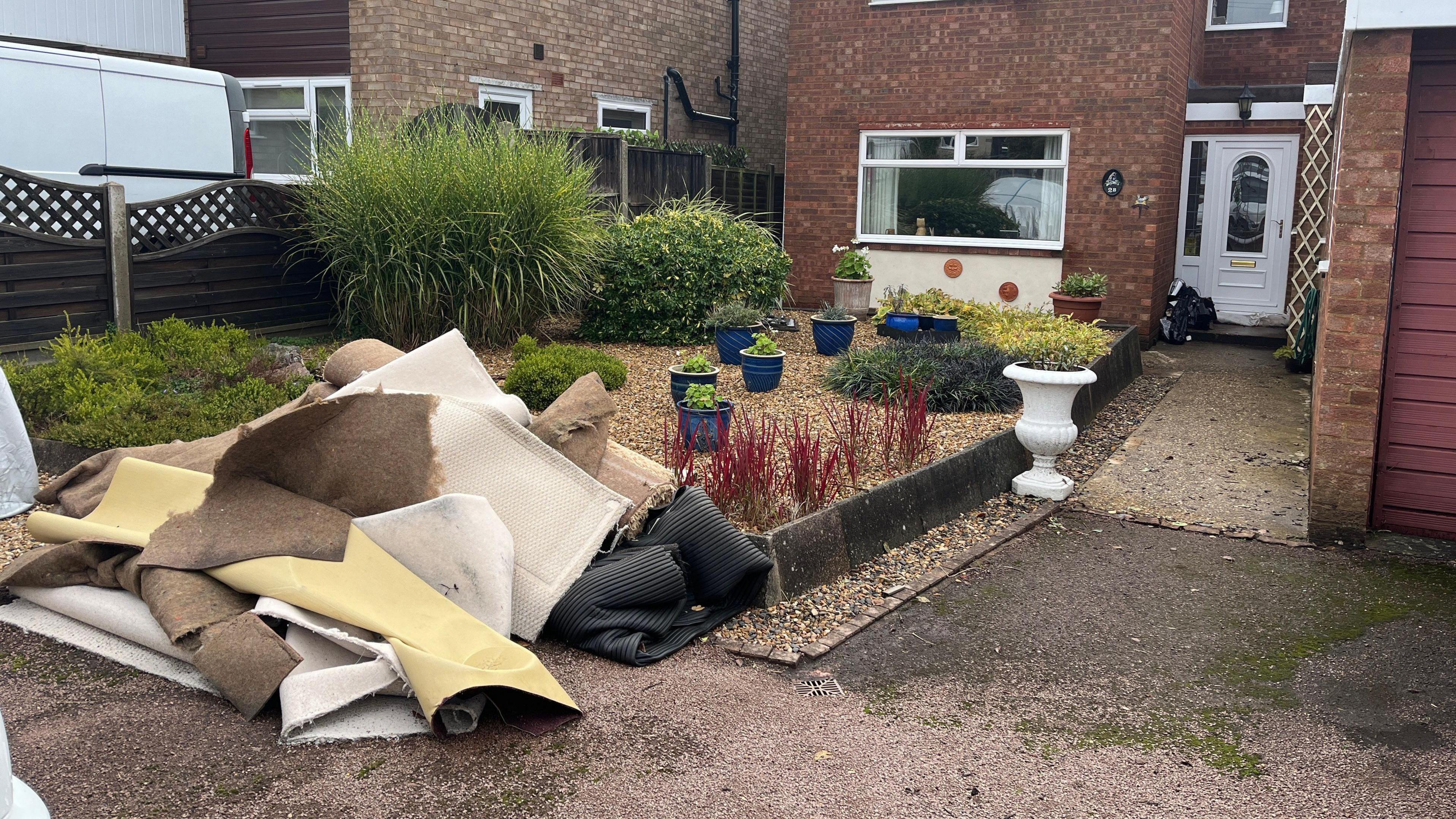
Homes including this one in Shefford were affected by the flooding
Stephenson's own home in the constituency was badly flooded. He had to pump water out of the ground floor following two bouts of heavy rain.
He said families locally "worry that floods like this will become the norm".
According to Central Bedfordshire Council, more than 400 properties in its area were flooded. It responded to flooding in 32 locations.
During a House of Commons debate, Stephenson said blocked drains "right across Mid Beds... significantly increased the likelihood of surface water flooding".
He asked for a "new statutory duty on local authorities to clear drains and culverts regularly, backed by central funding".
Maintenance of drains should "improve materially" because "leaves fall every autumn and block drains - not every three years", he added.
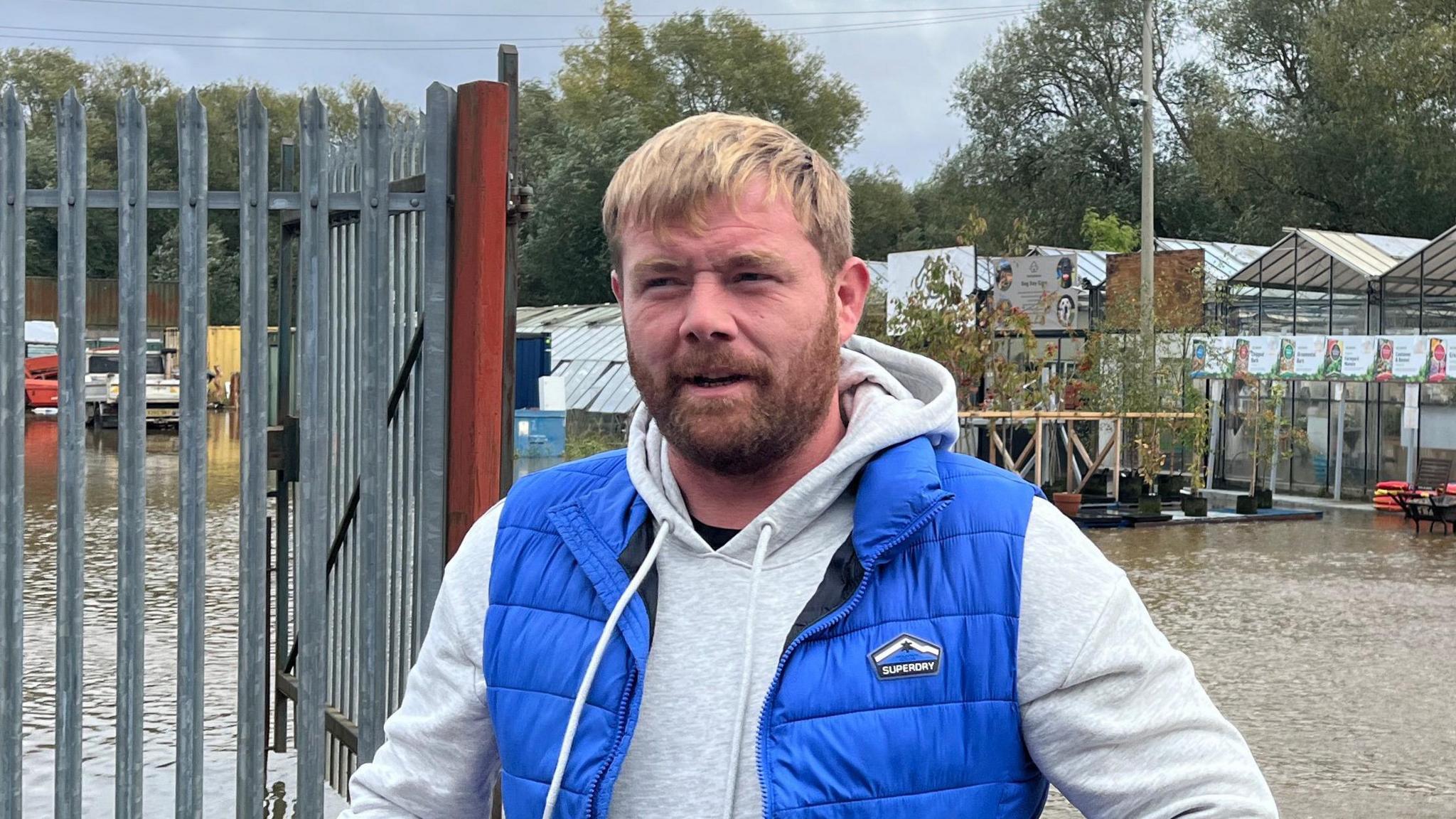
Kyle Nester, who runs Maulden Garden Centre, said they had suffered three or four floods since opening in April last year
Hardy said the condition of key flood defences in England was at "the lowest that it has been in 14 years".
The government planned to invest "over £1.25bn this year to scale-up natural resilience through building new and improving existing flood defences".
She said in Bedfordshire, the Environment Agency estimated £3.5m would be "invested in increasing flood resilience", which would include "small scale, surface-water solutions".
"This government will act to ensure people are better protected from flooding in the first place," she said.
A spokesperson for Central Bedfordshire Council said: "As we begin to move towards recovery, and what more can be done in terms of flood defence and preparation, further support from central government would help address the reality that these events are likely to become more common as our climate changes."
Get in touch
Do you have a story suggestion for Beds, Herts & Bucks?
Follow Beds, Herts and Bucks news on BBC Sounds, Facebook, external, Instagram, external and X, external.
- Published11 October 2024
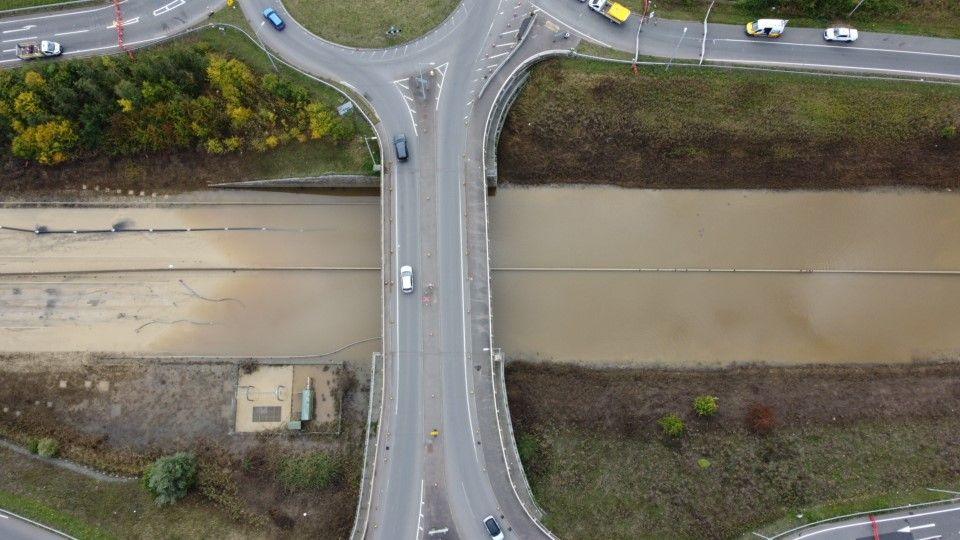
- Published3 October 2024
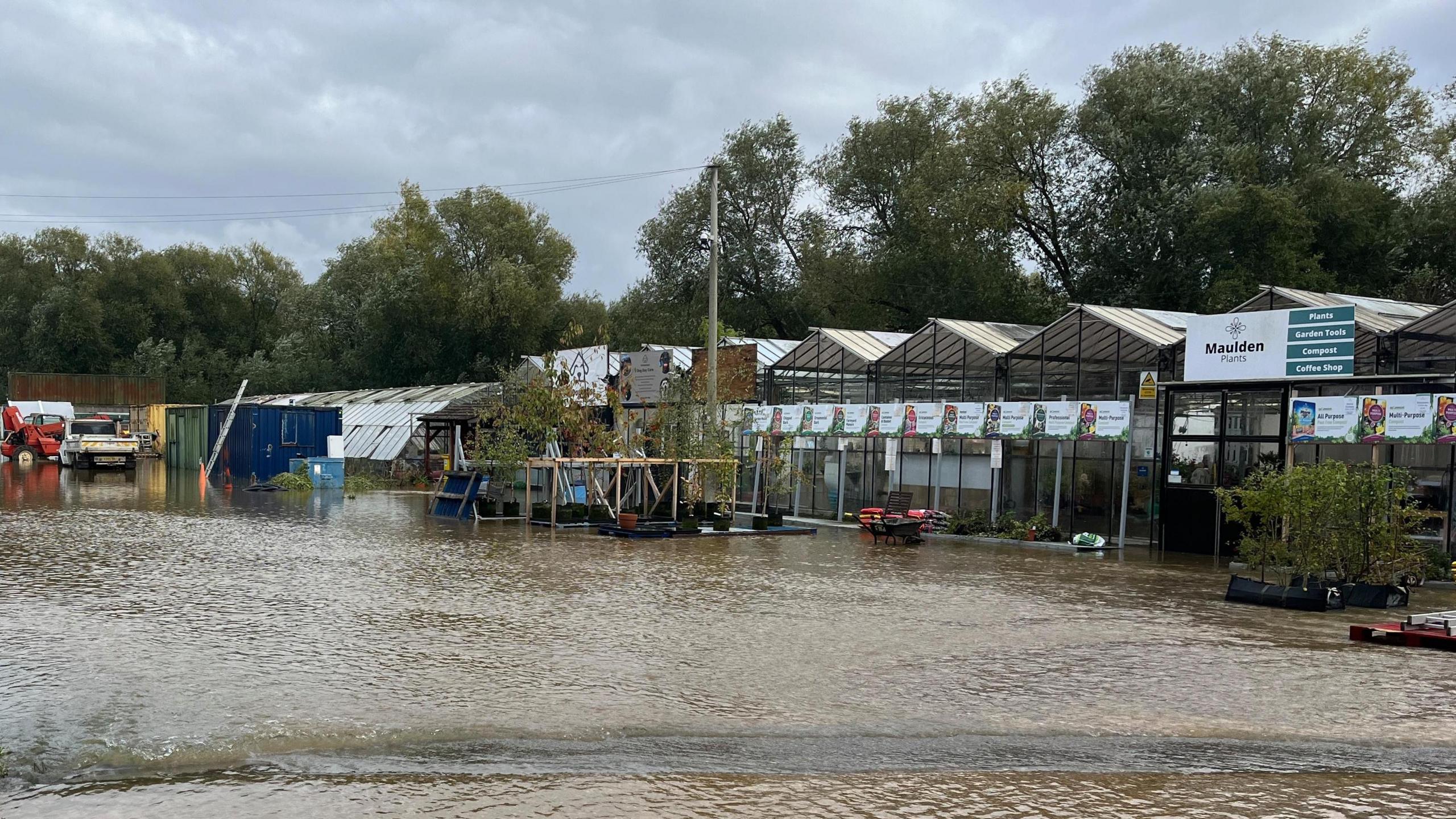
- Published27 September 2024
